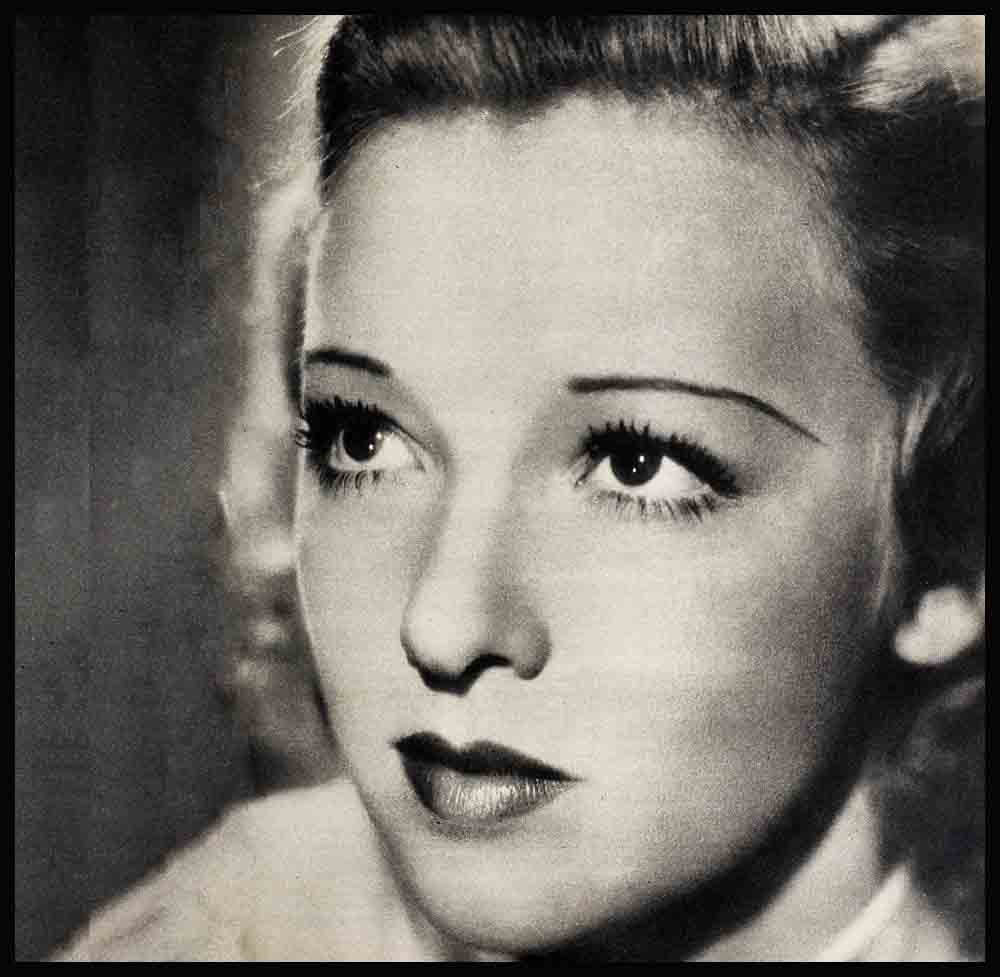
Dixie Lee
There was something about the rarely-seen, self-effacing little Dixie Lee Crosby that left an imprint on our town and in the hearts of the American people. Perhaps it can best be expressed by an elderly woman who wrote me shortly after Dixie was buried. “Movietown has lost lots of wonderful people. But Dixie was different,” she said. “It just seemed to me that when Bing or the boys were mentioned or seen about, somehow—I can’t explain it— you ‘felt’ Dixie.”
She’ll continue to be felt.
Back in 1930, Dixie Lee was a witty, beautiful young girl, in the midst of a zooming career. A “friend” gave her this advice: “Don’t marry the guy. If you do, you’ll probably end up supporting him all of his life. He’ll never amount to anything.” The man she was told not to wed was a little-known singer with Paul Whiteman’s orchestra; his name, of course, is Bing Crosby.
In those days nobody could have predicted that Bing would grow into an American institution—one of the most famous men in the world, and a person of such wealth that it has become a stock gag with comedians. He was, in those days, a playboy with a fondness for firewater that seemed destined to wreck whatever career he had. But Dixie married him.
Twenty-two years later—this past October—Bing was returning from Europe, where he had made a picture. In June, Dixie had had a serious operation. The doctors discovered she had cancer. ’Tis said that nobody told Dixie the nature of her ailment. However, several others and I knew; but we wouldn’t print it. We loved Dixie and wouldn’t publish anything that might be discouraging to her.
After her operation, she continued to ail. But when Bing arrived in Los Angeles, Dixie was at the station to meet him. Against medical advice, she got out of a sickbed to be at the train when her man came home. The strain was too much for her waning energies. The next day she collapsed and then went into a coma. Bing kept a constant bedside vigil. But the words that he would have doubtless given all of his fame and fortune to hear never came from Dixie. She remained in a coma until she died.
It is my guess that Dixie knew she had cancer. She was too intelligent not to have known. Last fail she wrote her will, leaving her half of the multi-million Crosby fortune to her loved ones. More significant is that less than a year ago she gave one of her rare parties, inviting seventy-five old friends. It was as if she wanted to take a last look at them all together. Not one member of the press was asked. I confess I was a bit hurt, because, more than a news source, I considered her my friend. I called Dixie the next day and told her so.
“I’d love to have had you, Hedda,” she said. “But I didn’t dare. It would have brought the rest of the press down not only on me—which wouldn’t have mattered— but on Bing. Knowing you as well as I do, I was sure you’d understand.” And I did.
That was Dixie. Always thinking of the welfare of those dearest to her.
Dixie was buried on November 4, her forty-first birthday. A crowd of fans waited outside the Good Shepherd Church in Beverly Hills, where the Services were to be held. They were very solemn, and lacking in the usual curiosity-seeking of fans. They had come to pay tribute to Dixie, whom they had rarely, if ever, seen. But they loved her, and not necessarily because she was Bing’s wife. To them, she represented a girl who had given up a brilliant career to devote her life and energies to her “five boys.” She always referred to Bing as one of her “boys,” too.
Bing, flanked by the four handsome, stalwart sons Dixie had given him, was on the point of collapse when he entered the church. During the funeral ceremony, he sat with bowed head before the casket blanketed with orchids and white gardenias. He prayed; and as he prayed, he brushed away tears. It was difficult to see in him the debonair, carefree Bing whom the world knows. He was just another man deeply grieving for a girl who had stuck to him through thick and thin for twenty-two years. No one could say what ran through his mind during the Solemn Requiem High Mass.
Twenty-two years is a long time. During that period, the Crosbys, like all other married couples, had their ups and downs. Finances were not a cause for worry. After their marriage, Bing’s career advanced at a rapid pace. He could provide his family with all the happiness money could buy; but there are some intangibles in human life that the wealth of emperors cannot purchase. For some reason, Dixie seemed to suffer from an acute loneliness. She was completely devoted to Bing and their four sons; but that was not enough, as great as it was, to obliterate some mysterious yearning in her nature. It may have been a sense of incompleteness for not having fulfilled her career in show business. Bing gave her every material thing her heart desired—even a stable of horses. But show business, once in your blood, is hard to oust. Jimmy Durante once told me that the great regret of his life was having his wife quit work once he began to earn enough to keep them both. The desire for self-expression is deeply rooted in all of us; and once the possibility of doing it is cut off, frustration sets in.
I asked Dixie about this several years ago. “Career!” she hooted. “What do you think I’ve got now? Haven’t I got my hands full raising my five boys?”
As time rolled by, she became increasingly shy. In her last years she saw very few friends; her rare appearances in night clubs sent the management scuttling to the telephone to alert the photographers. Getting an interview with her was almost impossible. I remember Bing’s astonishment when he came home two years ago and found me sitting in the garden interviewing Dixie while a photographer got pictures of her and the boys.
“Do you know that she’s been refusing to do this for five years?” said Bing.
“Yes,” I replied. “But this is the first time I’ve asked her.”
“Well,” said he, “you’ve done something I couldn’t do.”
On that afternoon Dixie was in a gay, bubbly mood. But the old gray witch of loneliness was often with her. That was perhaps why she drank more than was good for her. This kept her friends worried. I reveal this, feeling that Dixie wouldn’t mind, because she was an honest, forthright woman and would want me to tell the truth. She bothered nobody; and I never heard her condemn anyone for his failings. With such a precedent, it would ill behoove me to point up her one weakness. But it should be known that during her pregnancies about the only thing Dixie could keep in her stomach was brandy.
You’d have thought that after a couple of children, she’d have called it quits. But you didn’t know Dixie. Doggedly she continued until she had her husky quartet of sons. Each of them is a tribute to her upbringing. Dixie could be—and was—a stern disciplinarian. So her children, despite the cradle of fame in which they were born, are completely unspoiled.
And they adored her. Philip won an elocution contest on the subject of “Taking Mother to a Football Game,” About a year ago another son wrote a beautiful, almost book-length letter which he addressed simply: “To My Mother.”
Dixie was as grateful as a child who’d been handed a new toy when others thought of her. One Christmas Eve I was dining with Merle Oberon, who had a dozen guests at the table. Suddenly her face lit up. “I wonder what Dixie’s doing tonight,” she said. I suggested that we call up and find out.
She was waiting at home for Bing. No, she didn’t know when he’d come. Except for the cook and the maids she was all alone. The boys were asleep. “Why don’t you come over and join us?” said Merle. No, she couldn’t do that. It was Christmas Eve; she wanted to be home when Bing arrived.
Merle hung up. “I know what we’ll do,” she said. “We’ll go over and get her.”
When we got there, Dixie was all dressed up for her man. She wore a black velvet gown, diamond earrings, clips, bracelet, and a diamond solitaire ring to match. She’d dolled up like this, not expecting visitors. She was simply waiting for Bing.
It took a lot of persuading; but finally we prevailed, and she came back with us. But I think I never saw a lonelier girl during the four hours she was in our company. She had only two drinks. Sitting on the floor, she reached out, touched Merle’s hand, and said in a forlorn voice, “Thank you. It means so much.” Her shyness would not permit her to say more.
Once when Dixie and I were in New York at the same time, I called to invite her to lunch. “If you had called me yesterday, I would have joined you like a shot,” she said. “But I’m packing to go home tonight.”
“Home?” I asked. “Bing’s staying another two weeks, isn’t he?”
“Yes,” she replied. “That’s why I’m going. I’d rather be lonely at home. I’m staying at the Garden City Hotel in Long Island. Have you ever been there?”
I had. Once in my youth I had gone there with DeWolf Hopper to watch a golf tournament. I still retained in my mind a picture of the front porch: A mile of rocking chairs with sweet old ladies rocking and knitting; knitting, rocking, and gossiping. Dixie had sat there three days while Bing was out playing golf. So she went home. And who could blame her?
In fairness to Bing, I must point out that he was not neglectful by intent. He had many friends for whom Dixie did not care. As a big wheel in show business, he had become practically a Citizen of the world, while Dixie had retired further and further into the small group that contained her family. Bing was constantly meeting people, doing benefits, and attending to business affairs. This required much of his time. Dixie was proud of his success; but it did not detract from her loneliness.
Dixie was born in Chicago; her real name was Wilma Wyatt. From what I can gather, her childhood was quite normal, except for that touch of shyness which was with her all her life. She didn’t like the rigid discipline of school and early cast her eyes on show business. She began taking singing lessons from Benny Meroff.
One day her father saw a newspaper notice of an amateur contest being conducted by Ruth Etting. “This is your opportunity,” he told his daughter. ”You’re going to enter that contest.” Young Wilma was so timid that she changed her name so her schoolmates wouldn’t know if she tried and lost in the competition.
“I was so bad and nervous,” she laughed in later years, “that Ruth Etting must have known that I was a real amateur. She voted for me.” The award was a four-week engagement at the College Inn. Wilma got herself an agent and changed her name to Dixie Carrol (later she changed it to Dixie Lee). Out of the blue came an offer for her to play in “Good News.” Dixie practically went into shock. Singing in a small night spot among friends was one thing; but tackling a musical headed for Broadway was quite another. Her agent had to force her to take the job.
In New York, as destiny would have it, the star of the show got sick; and Dixie took her place. “The band,” she used to muse gleefully, “was hysterical over my dancing. The boys just hoped that I’d do one number right.” In her frank way, she had notified the producer that she was no great shakes as a dancer before going with the show. This violated one of the basic axioms of show business: Always say yes when you’re asked if you can do anything. Her agent pointed this little matter out, but it never took with Dixie. She had to be honest even if it cost her a job.
Nevertheless, the musical proved a good showcase for her. Motion pictures were changing from silents to talkies, and Hollywood was falling on its face trying to get Broadway people who could speak and sing. Before long the movies signed Dixie. “In Hollywood,” she said, “I suddenly found myself a big shot because I was a Broadway star. Yes, I’d been on Broadway—almost seven weeks.”
Despite her self-disparagement, she had the quality of a true star. Her career was on a rapid upgrade when she met Bing. At this time she was living with Peggy Renier and Holly Hall. Both these girls had dated the singer and found him attractive. But Bing often broke dates with them. This burned Dixie, who had a proud independent nature. What right had this two-bit crooner to break dates with her friends? She wanted to meet him—but only to give him a piece of her mind.
Finally she met Bing. Even then he had the garish garments and nonchalance for which he is now famous. “He was a bad dancer,” Dixie recalled afterwards. “He liked me, I think, because I could dance.”
But the crooner, who’s charmed the civilized world since, had girls to spare. , “You have my number,” he said casually to Dixie, “call me up sometime.” Dixie had his number all right, but it wasn’t the number Bing meant.
“I never call up anybody,” she said.
That did it. Bing had found a girl who no intentions of drooling over him. It was Bing who did the calling, and soon they were going steady. I recall meeting them at a party given by Nancy Lee. That was the first time I ever heard Dixie give an imitation of Bing. It was better than any imitation. It was a wonderful caricature of the crooner. The pretty little blue-eyed blonde laid it on so thick that she had Bing rolling on the floor with laughter. Nobody appreciated the devastating impersonation more than he. Yes, she had his number all right. And Bing had found his woman.
Not long after that party—on September 29, 1930—they were married. But before they became man and wife, Dixie, knowing the harm drinking was doing his career, prevailed upon Bing to quit. He did it willingly for her; for many years he didn’t touch the bottle. And when he did, it never became a problem again. Hollywood was amazed at how quickly the carefree playboy settled down and became a family man. But to the end of her days, Dixie never took any credit for Bing’s phenomenal success. “Nobody, including me, ever helped him get anywhere,” she would say.
But marriage brought new responsibilities. It is to Bing’s credit that he measured up to them. He began to take his work seriously, and the public took him to its heart. The talent was there all the while; but his new position in life was the factor that brought it out. And Dixie, regardless of what she said, was in there pitching for him all the way.
Success in show business is seldom devoid of tragedy. An actor, unlike a shop keeper, can’t lock up his work, go home, and forget it. He belongs partially to the public; never completely to himself. From every direction he is pulled by adoring fans or people who want to get on the band wagon of a successful man. You’re expected to keep all your old friends and constantly make new ones; otherwise you’re a snob. You have to make appearances here, there, everywhere; otherwise you’re considered an ungrateful heel. Your every move becomes news; you live in a goldfish bowl. And as you progress you work harder and harder, because success breeds success. I’ve known nobody who has discovered a way to avoid the pattern. This is part of show business; and if you’re a hit, you’re stuck with it.
This was the tragedy of the Crosby marriage. When Dixie started having her babies—with what untold agony nobody will ever know—her world became smaller and smaller. Finally her life revolved almost completely around her famliy, especially Bing. She was in love with him until the day she died.
Dixie had but a handful of intimate friends. Perhaps the closest was Mrs. Alan Ladd. Her public appearances were so rare that she almost became a myth. Several years ago, she and Bing went to Ciro’s and made news when he objected to being photographed with his wife. I asked Bing about the matter.
“It wasn’t a matter of just being photographed,” he snorted. “I’d just started dancing with Dixie and didn’t want to stop to have my mug mapped for publicity.”
“But I’ve been told,” said I, “that when you were in Jasper Park making a picture recently, you’d pose for anybody that pointed a camera in your direction.”
That was different,” he explained wearily. “Those people seem to get a kick, out of being photographed with me. Why—I haven’t the slightest idea. But if posing with me makes them happy, why should I object? I suppose it’s part of my business. But when Dixie and I go out, I want to be just like any other married couple seeking a little fun.”
As Dixie’s world narrowed, Bing’s expanded. For relaxation he took up golf, which meant many more hours away from home during his spare time.
Many girls would have been contented with having money to buy anything they wished. Bing never stinted on Dixie. They had three homes. But one desire of Dixie’s was never fulfilled. She loved her four sons dearly, but she always wanted a little girl, too.
She and Bing shared a sense of humor that rarely failed them. When he ordered the biggest television screen he could find and had it installed in her room, Dixie said, “It’s too close to my eyes.” She pointed to a tree out in the yard. “To really enjoy this set, I’d have to have a seat there.” Next day Bing had a chair latehed onto the tree. But, of course, Dixie never used it.
The Crosbys, like all married couples, had their differences. About once a year we got the report that they were divorcing. I never believed these rumors and always denied them. Bing, being a Catholic, doesn’t believe in divorce; and they had too much at stake with their four sons to risk a break-up. Once a divorce rumor got started when there was a kind of division of community property. This gave Bing a laugh.
I believe the most serious rift between the Crosbys came in 1950 when Bing went to Europe on a “bachelor’s vacation.” Dixie really wanted to accompany him—but not with a retinue of his cronies. Bing admitted that she was a bit peeved at him for not taking her along, but denied any divorce plans. Their lawyer said relations between the couple were “strained,” but there was hope for a reconciliation when the crooner returned from Europe. Meanwhile Dixie indignantly told a reporter, “We’ve had no quarrel. Bing wanted to go to Europe. I had to stay here with the kids. I hear from him nearly every day. And as far as I know, there’ll be no separation until either he or I give the green light. But,” she added, “with a couple like us, anything or nothing can happen.”
This time when Bing returned from Europe, Dixie was not at the station to meet him. But whatever the difficulties, the marriage was soon sailing in smooth waters again. Then Dixie, figuring if Bing could do it, so could she, took her secretary, went to Europe and had herself a ball.
They covered a lot of ground, stopping at thirty different hotels, and traveling around 20,000 miles. In Paris they bought a station wagon and drove through Europe.
This was the first time since her marriage that Dixie had been absent from her home for more than four weeks; and she cut that trip short to return for the graduation of two of her sons. While abroad, Dixie never for a moment forgot her family and friends. She returned home laden with gifts. The boys got the station wagon.
About a year ago, Harold Grieve redecorated Dixie’s bedroom. “I must have five big, comfortable chairs in here for my five boys,” she told him. “This is where they relax.” And over that home will always hover her spirit—that shy, generous shining spirit that helped shape the career of one of our greatest showmen and the lives of four wonderful sons. With God’s help, Bing and the boys will carry out the pattern Dixie set for them.
THE END
It is a quote. PHOTOPLAY MAGAZINE FEBRUARY 1953

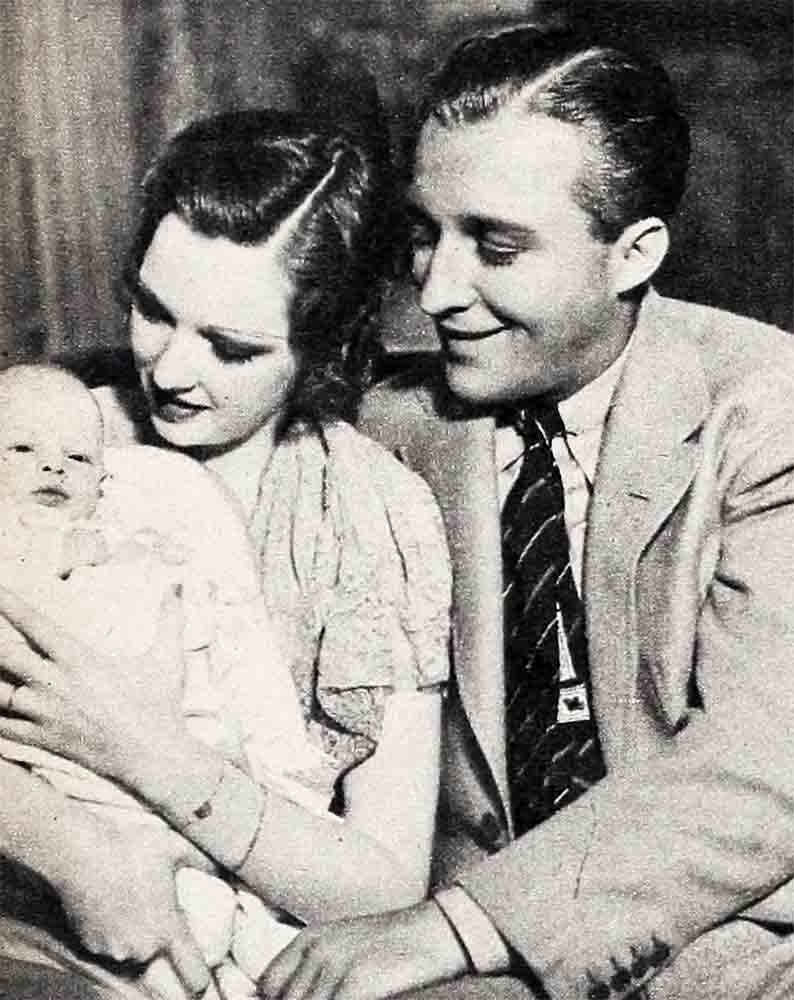
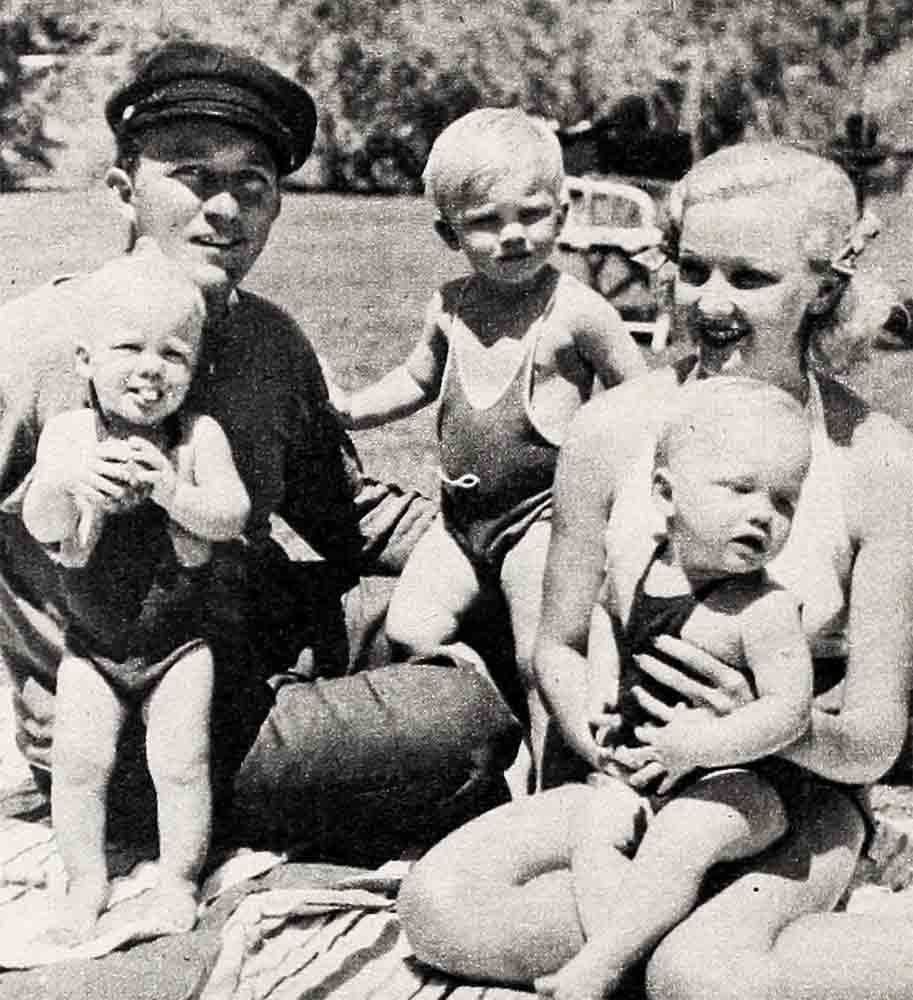
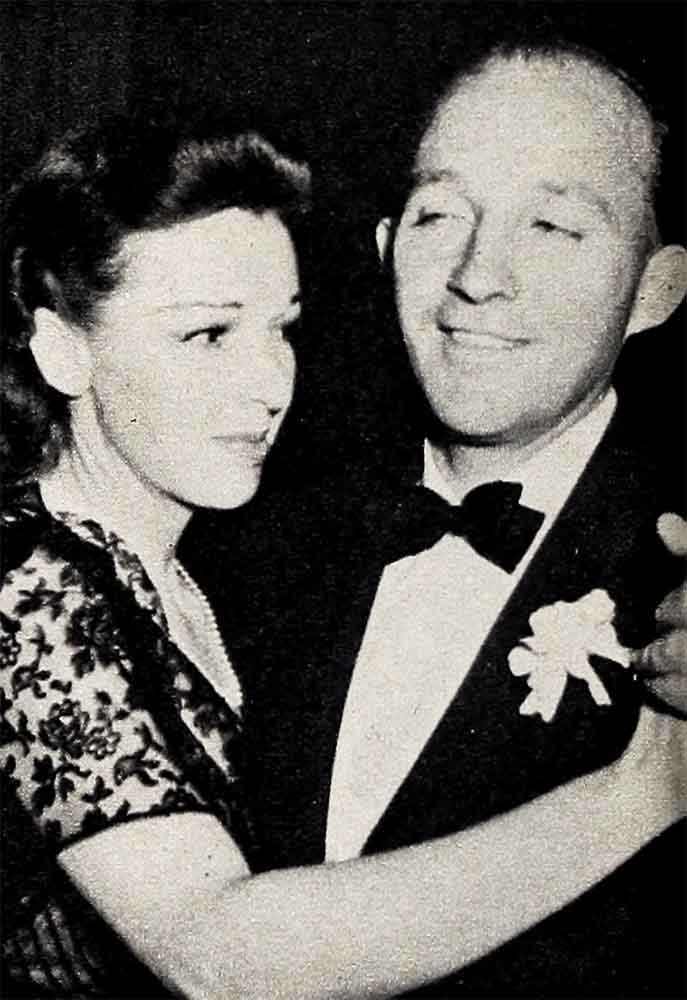

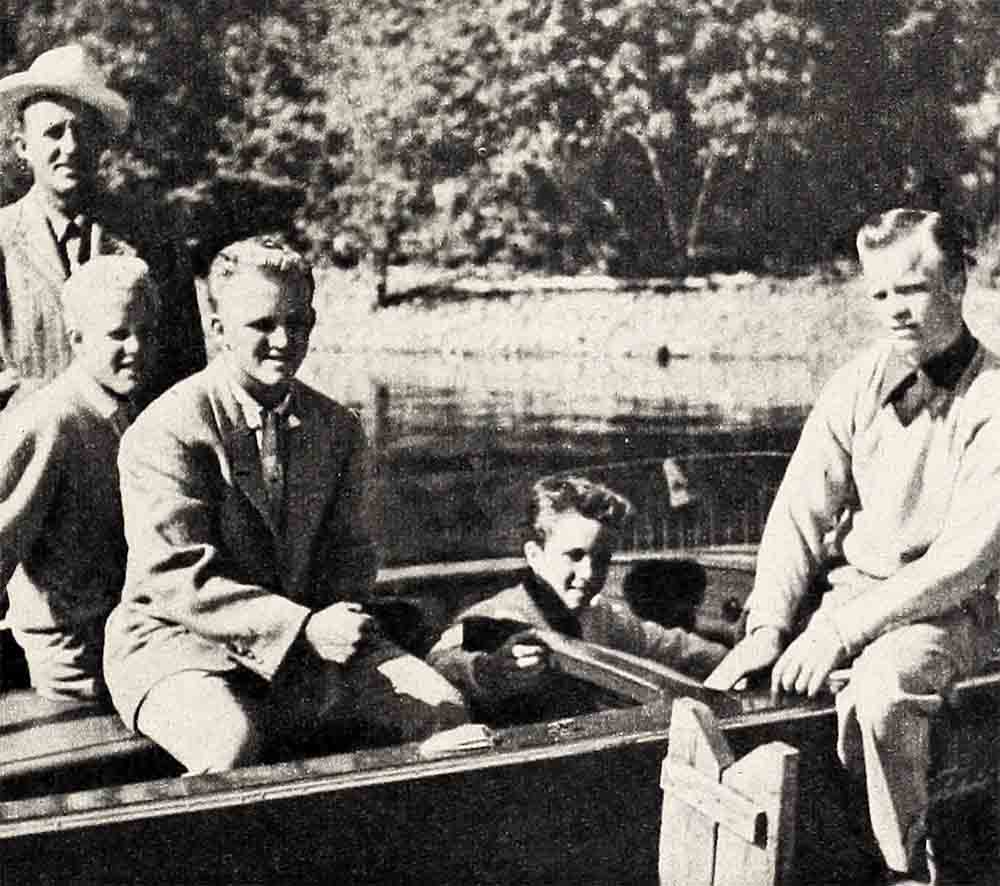
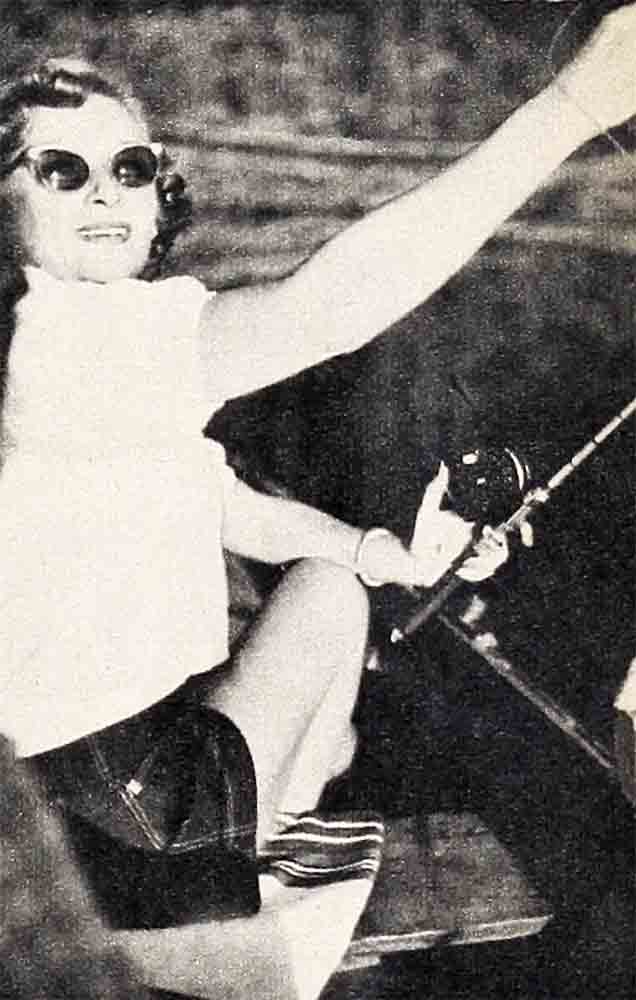

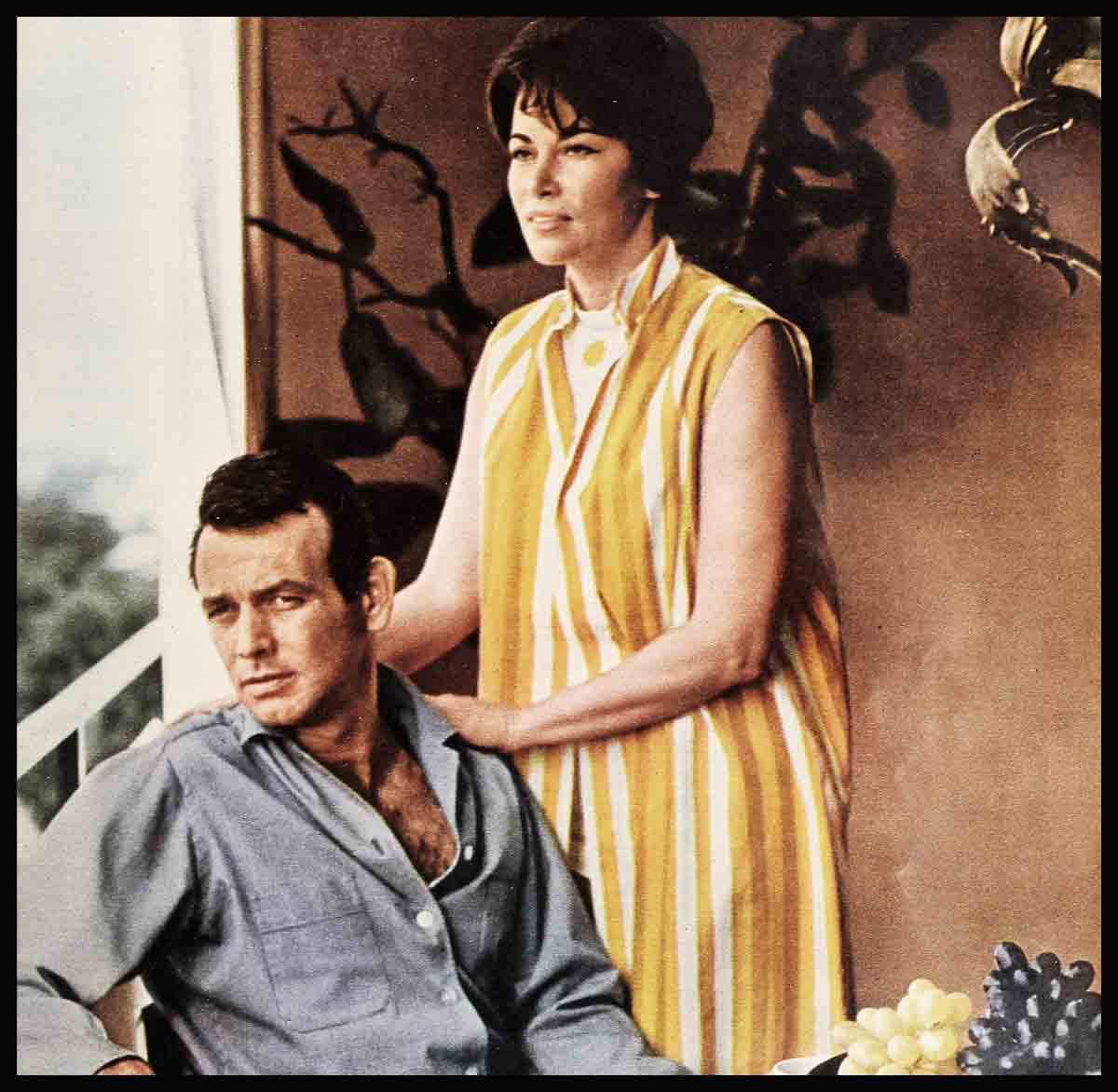

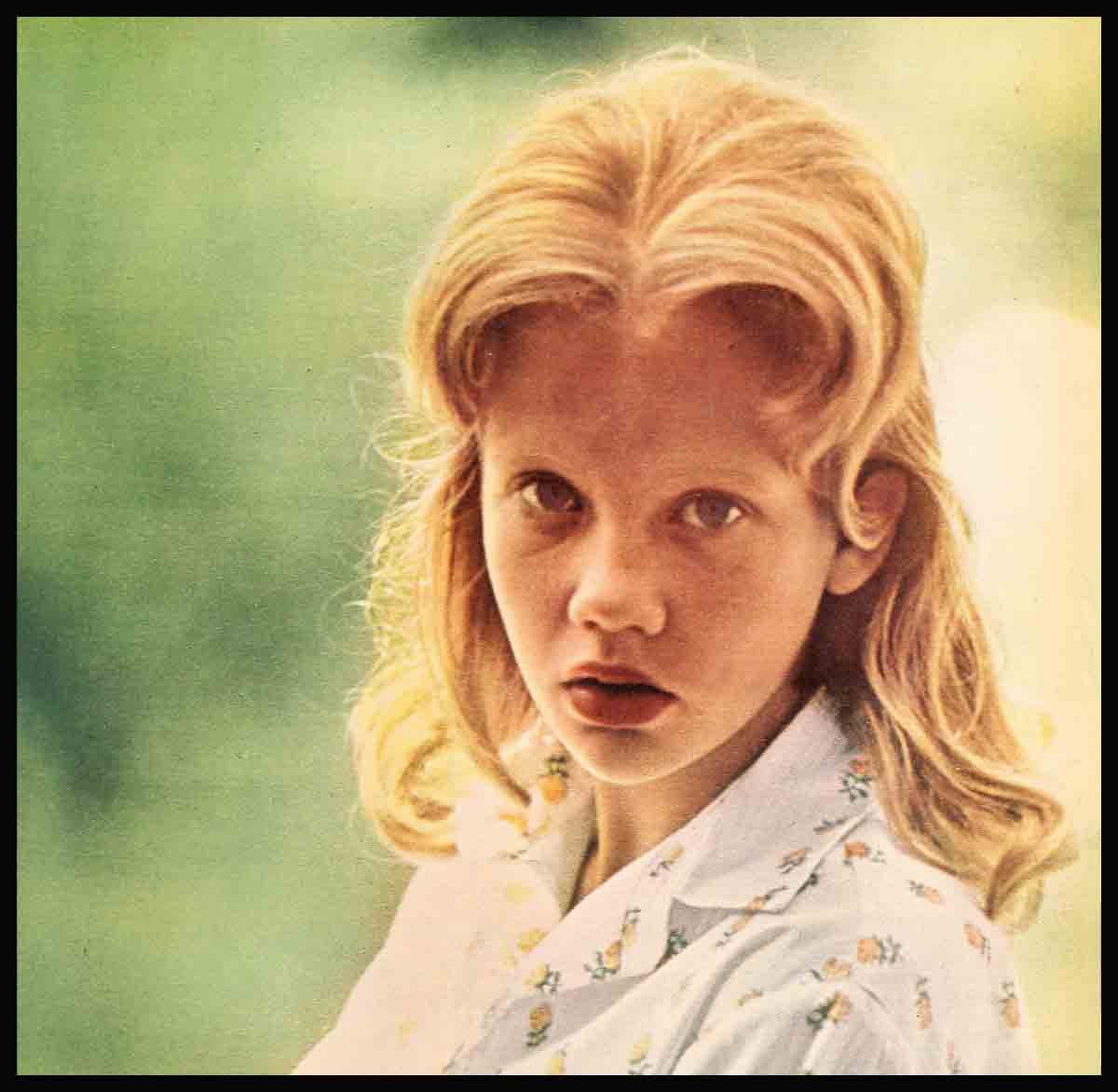
Ivette Bouffard
6 Mart 2023Greetings! Very helpful advice within this article! It’s the little changes that make the most significant changes. Thanks for sharing!
Rueben Engleby
24 Mart 2023I must thank you for the efforts you’ve put in penning this site. I am hoping to see the same high-grade content from you later on as well. In fact, your creative writing abilities has inspired me to get my very own blog now 😉
Eloy Sek
14 Nisan 2023Oh my goodness! Amazing article dude! Thank you so much, However I am experiencing difficulties with your RSS. I don’t know why I can’t join it. Is there anyone else getting the same RSS issues? Anyone who knows the solution will you kindly respond? Thanx!!
Mose Petrillo
9 Mayıs 2023The very next time I read a blog, I hope that it does not disappoint me just as much as this particular one. I mean, Yes, it was my choice to read, however I truly thought you’d have something helpful to talk about. All I hear is a bunch of whining about something you could fix if you weren’t too busy seeking attention.
Noemi Walkingstick
22 Mayıs 2023Good web site you have got here.. It’s hard to find high-quality writing like yours these days. I truly appreciate people like you! Take care!!
gralion torile
21 Haziran 2023I am glad to be a visitant of this thoroughgoing weblog! regards for this rare information!
Florencia Schrecongost
26 Temmuz 2023The next time I read a blog, Hopefully it won’t disappoint me as much as this one. I mean, Yes, it was my choice to read through, but I really thought you would have something helpful to say. All I hear is a bunch of complaining about something that you can fix if you weren’t too busy seeking attention.